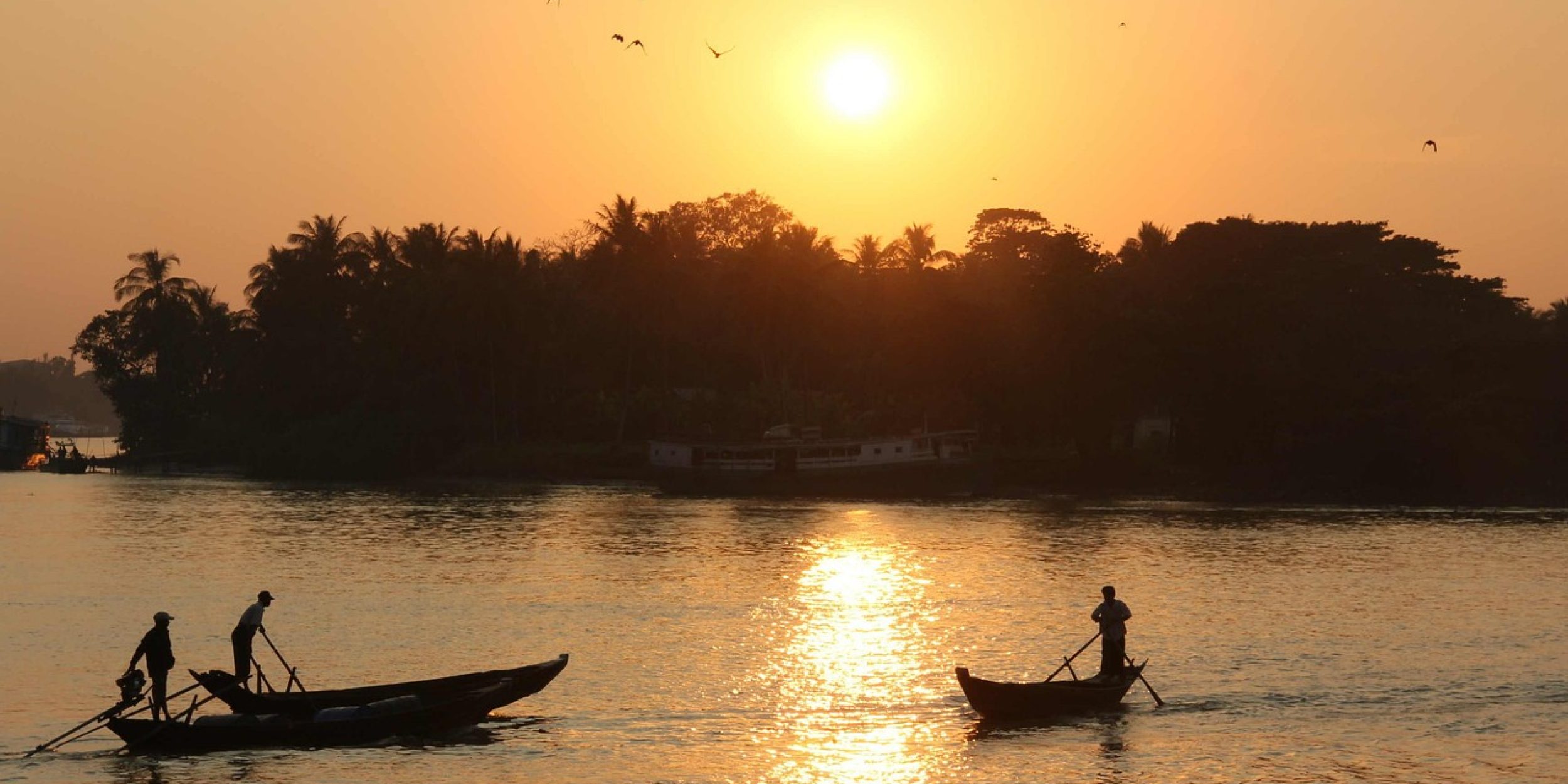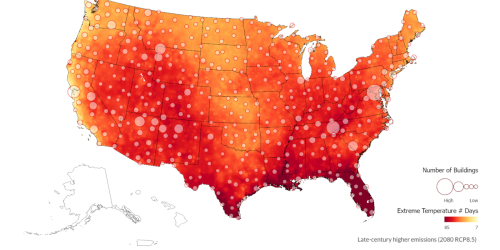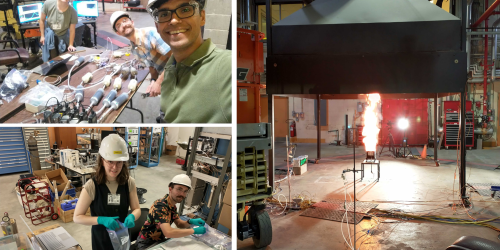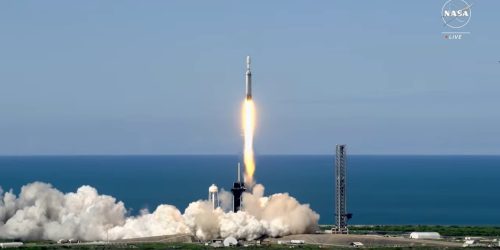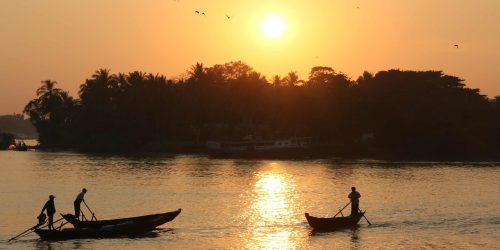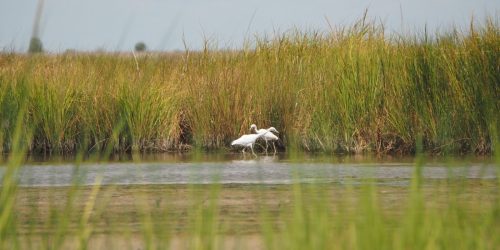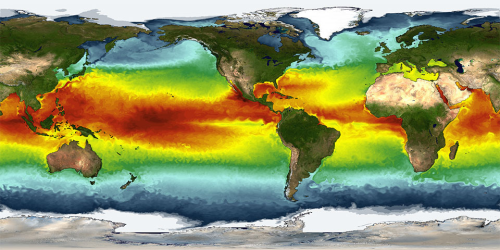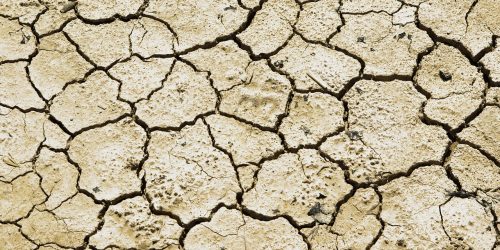The Climate Program Office (CPO) is announcing 11 new two-year projects in Fiscal Year 2023 (FY23) that aim to identify and better understand evolving climate risks, vulnerabilities and adaptive capacity for islands in the Caribbean and the Pacific. The competitively selected projects total $3,140,372 in grants1. These island resilience projects will help foster the integration of this knowledge into adaptation and resilience planning for these islands.
Small island geographies are among the most vulnerable to climate change. Many of them are
already facing compounding climate risks and cascading impacts related to relative sea level rise, coastal flooding, shifting temperature and rainfall patterns, increasing ocean acidification. The impacts on marine and coastal ecosystems, and extreme events such as storms, droughts, and marine heat waves contribute to their vulnerability as well. Islands throughout the world are environmentally, socio-economically and culturally diverse, but many share characteristics that shape their climate-related risk and response actions. Islands are leading the way in developing adaptive pathways and solutions.
The United States formally announced a multi-agency partnership to work with island partners to enhance their resilience, which includes NOAA and the U.S. Department of State, among others, at the April 2021 Leaders Summit on Climate. NOAA and the Department of State continue to work together, along with the broader USG Federal agency community, under the President’s Emergency Plan for Adaptation and Resilience (PREPARE). The FY23 funding competition contributes to these efforts and leverages funding provided by the Department of State to support two of the 11 newly funded projects.
Through the CPO Adaptation Sciences (AdSci) program FY23 competition, AdSci sought to support interdisciplinary and participatory research activities that address island-identified resilience needs; with an emphasis on projects that result in: (1) the co-production of contextually relevant and usable information about climate impacts, vulnerabilities and solutions; (2) the evaluation, identification and strengthening of the adaptive capacities of institutions, communities, sectors and islands; (3) and/or the integration of climate information in adaptation planning, action and long-term resilience strategies. Within this framework, research proposals were requested to address one or more of the following topics:
- Identify evolving risks and vulnerabilities that arise as a result of the intersection of socioeconomic and climate stressors in these islands, and assess the adaptive related capacity within and across key sectors, including the food-energy-water nexus;
- Evaluate, test and/or scale up approaches to mitigating risk and advancing effective adaptation, including methods related to compound events and cascading impacts, nature based solutions, climate information and early warning systems, and/or low-carbon adaptation and resilience solutions;
- Advance understanding of key barriers and enabling conditions (e.g., governance, attitudes, political norms, education, culture) that influence adaptation and resilience in islands of the Caribbean and Pacific through the use of participatory social science methods.
The Program received 27 proposals, and of these 11 projects were selected for funding, totaling $3,140,372.00 in grants.The 11 new projects funded by the AdSci Program in FY23 are:
Costs and tradeoffs of sea level rise adaptation in island urban centers: the case of Waikīkī
- This research project aims to better define the costs and tradeoffs of the various sea level rise (SLR) response strategies available to coastal urban centers in the Pacific Islands. Building upon a cost analysis model the University of Hawai‘i Institute for Sustainability and Resilience has been piloting on O‘ahu’s North Shore, the researchers plan to to identify the costs and tradeoffs of SLR response strategies available to coastal communities in the Pacific Islands by applying and developing the new model in a dense island urban context. Additionally, the researchers plan to apply this model to the famous urban resort area of Waikīkī.
- PI: Ketty Loeb, University of Hawai‘i at Mānoa (Honolulu, HI 96822)
- Co-PI(s): Makena Coffman, University of Hawai‘i at Mānoa (Honolulu, HI 96822)
- Award Amount: $300,000.00
Building public health climate change adaptation capacity in U.S. territories and Freely Associated States: an implementation science approach
- U.S. territories and Freely Associated States in the Caribbean and Pacific (i.e., Island Jurisdictions) are among the nation’s most at-risk for climate change health (CCH) impacts. This high risk is due to Island Jurisdictions’ exposure to many climate-exacerbated hazards, social and environmental vulnerabilities, and insufficient capacity to prepare and respond. Public health agencies (PHAs), including those in Island Jurisdictions, must become climate resilient. The U.S. Centers for Disease Control and Prevention (CDC) has developed the Building Resilience Against Climate Impacts (BRACE) framework to increase health system resilience. However, as Island Jurisdiction PHAs are chronically under-resourced, they face unique challenges related to CCH adaptation program integration, despite their high level of risk. Implementation science can help identify and lend insights into the determinants of successful adaptation implementation and identify measures of success and strategies for improvement. This project will take an innovative use of implementation science to assess the level and determinants of implementation of the five CCH adaptation steps defined in the CDC BRACE framework, and co-produce strategies to improve implementation, in partnership with the Association of State and Territorial Health Officials (ASTHO).
- PI: Nicole Errett, Ph.D., University of Washington (Seattle, WA 98195)
- Co-PI: Jeremy Hess, University of Washington (Seattle, WA 98195)
- Co-PI: Kristie L. Ebi, Ph.D., University of Washington (Seattle, WA 98195)
- Award Amount: $300,000.00
A networked governance assessment to address barriers and enabling conditions to multiscale and multisector climate adaptation pathways in an urban context
- This project creates and tests participatory tools to improve adaptation governance in the Río Piedras urban watershed in San Juan, Puerto Rico, where the multi-level, multi-actor and multisector flood adaptation initiatives are concentrated. The novel co-production process engages diverse river communities and city, territory, and federal stakeholders in interviews, dialogues and workshops, in a novel combination of adaptation pathways and actor-knowledge network methodology. The project (1) develops an networked governance assessment framework that maps the different desired adaptation pathways and actor-knowledge network characteristics (e.g., roles and responsibilities, agendas and motivations, mental models, and knowledge systems), (2) applies a transformative co-production process with stakeholders to identify the multi-scale and cross-sector pathway intersections, and to identify capacities and opportunities to overcome consequent barriers, navigate governance complexity, and enable collaboration and partnerships, (3) develop replicable visualization tools for subsequent application in the NOAA Caribbean Climate Adaptation Network (CCAN) CAP-RISA.
- PI: Hallie Eakin, Arizona State University (Tempe, AZ 85287)
- PI: Tischa Muñoz-Erickson International Institute of Tropical Forestry (IITF) USDA Forest Service (San Juan, 00926, Puerto Rico)
- Co-PI: Raúl Santiago-Bartolomei, University of Puerto Rico – Rio Piedras (San Juan, 00925, Puerto Rico)
- Co-PI: David Iwaniec, Georgia State University (Atlanta, GA 30302)
- Co-PI: Elvia Meléndez-Ackerman University of Puerto Rico – Rio Piedras (San Juan, 00925, Puerto Rico)
- Co-PI: Pablo Méndez-Lazaro, University of Puerto Rico – Medical Sciences Campus (San Juan, 00921, Puerto Rico)
- Award Amount: $276,318.00
Assessing the adaptive capacity of ancestral post-disaster seafaring networks and lived experiences of climate knowledge in the Republic of the Marshall Islands (RMI) and the Federated States of Micronesia (FSM)
- The project investigates place-based expertise—through generational climate stories, lived experiences, and other Indigenous ways of knowing—to uncover traditional foundations of adaptive capacity in island worlds. By inquiring into dimensions of resilience maintained by and embedded in seafaring systems that supported local communities’ past responses to the cascading impacts of diverse environmental disasters (typhoon, tsunami) and impacts (ENSO, drought, resource collapse), this project seeks to assess the potential for Indigenous seafaring knowledge to be effectively employed or re-activated to inform community-driven climate resilience strategies.
- PI: Joseph Genz, Ph.D., University of Hawaiʻi at Hilo (Hilo, HI 96720)
- Co-PI: Alexander Mawyer, Ph.D., University of Hawaiʻi at Mānoa (Honolulu, HI 96822)
- Award Amount: $299,028.00
Assessing and advancing climate resilience in Fijian marine ecosystems, fisheries, and fishing communities
- This project will advance climate resilience assessments and planning for small-scale fisheries in Fiji. As a low-lying small island nation, Fijian fisheries are on the frontline of experiencing and adapting to climate impacts. Participatory research in three coastal Indigenous fishing communities will be conducted to: (1) understand existing and future vulnerabilities to climate impacts; (2) identify resilience features of the fisheries and factors that support or constrain resilience; and (3) develop strategies for enhancing climate resilience in these fisheries. Results will yield much-needed forward-looking recommendations and plans for advancing climate resilience in each of the focus fishing communities. In addition, the project’s approach, findings, and recommendations will be conveyed to national agencies in Fiji and the US, regional organizations spanning the Pacific Islands, and international organizations. Moreover, the project will be integrated into a UN Ocean Decade program, Fisheries Strategies for Changing Oceans and Resilient Ecosystems by 2030 (FishSCORE).
- PI: Katherine Mills, Ph.D., Gulf of Maine Research Institute (Portland, ME 04101)
- Co-PI: Sangeeta Mangubhai, Ph.D., Talanoa Consulting (Suva, Fiji)
- Co-PI: Kanae Tokunaga, Ph.D., Gulf of Maine Research Institute (Portland, ME 04101)
- Award Amount: $299,664.00
Collaborative mapping of physical and socio-economic impacts of sea level rise in the Federated States of Micronesia (FSM)
- Working Group I of the IPCC 6th Assessment Report states with high confidence that sea level is committed to rise for centuries to millennia due to continuing deep-ocean warming and ice-sheet melt and will remain elevated for thousands of years. As sea level rises so does the risk of cascading impacts such as marine flooding, aquifer salinization, groundwater inundation, coastal erosion, losses related to extreme weather, and increased socioeconomic inequalities. Harbors, airports, and other critical infrastructure in the Pacific Island communities of the Federated States of Micronesia (FSM) are located on low-lying coastal lands and are highly vulnerable to sea level rise (SLR)-related impacts. These impacts include flooding and salinization, threats to food and water sovereignty, and loss of economic security. These will likely force an accelerating realignment of physical and socio-economic assets. Despite this inevitability, these communities lack widespread climate data and projections and do not have all the tools for predictive planning at their disposal. This research team recognizes the social and cultural uniqueness of each island and will work with the communities to understand the impacts of SLR already being experienced in the islands and additionally will address the elevation model knowledge gap.
- PI: Dr. Charles “Chip” Fletcher, University of Hawaiʻi at Mānoa (Honolulu, HI 96822)
- Co-PI: Victoria Keener, Ph.D., Arizona State University (Tempe, AZ 85287) and the East-West Center (Washington, DC 20036)
- Award Amount: $299,798.00
Play for the mangroves: using sports to engage youth in mangrove conservation
- The destruction of its coastal mangroves is one of the most significant problems faced by the Dominican Republic (D.R.) today. Up to 70% of the D.R.’s population lives in areas at high risk of floods and storms, while 95% live in areas that are threatened. Mangroves play an important role in climate change mitigation and adaptation by sequestering carbon, shielding villages from tropical storm damage, providing a haven for juvenile reef fish, and preventing erosion. Nevertheless, people living near the mangroves do not always understand these abstract benefits, often have a negative perception of mangroves, and think that they provide a barrier to developing beach tourism. These attitudes, and the actions associated with them, are an important challenge to mangrove conservation. This project implements a randomized controlled trial to estimate the effects of an environmental education program designed to increase understanding of the mangroves’ function in the island ecosystem. It capitalizes on the popularity of sports in the D.R. by providing sports equipment to underserved young people as an incentive to participate in a program where they learn the importance of the mangroves and how to protect them.
- PI: Jennifer Alix-Garcia, Oregon State University (Corvallis, OR 97331)
- Co-PI: Christopher Knittel, Massachusetts Institute of Technology (Cambridge, MA 02139)
- Co-PI: Laura Rodriguez Ortiz, Innovations for Poverty Action, Dominican Republic (Santo Domingo, República Dominicana)
- Award Amount: $165,977.00
Integrating climate services and products in environmental impact assessment regulatory processes, administration and systems in Caribbean small island states
- This project will evaluate the readiness of climate services for informing the existing Environmental Impact Assessment (EIA) regulatory processes by authorities and developers in Barbados and Dominica. This project addresses the key challenge of connecting environmental regulatory agency processes, such as environmental impact assessments (EIAs), to climate service products, and identifies a need to leverage, co-produce and integrate these processes for adaptation and resilience benefits to the region. Anticipated outcomes from this project include the identification of points of interest where climate services and EIAs can complement each other at institutional, process, administrative, stakeholder levels in Barbados and Dominica in order to enable adaptation and resilience.
- PI: Kalim Shah, University of Delaware (Newark, DE 19716)
- Co-PI: Janice Cumberbatch, The University of the West Indies (Kingston 7, Jamaica, W.I.)
- Award Amount: $299,681.00
Adaptive planning decision support for island communities: understanding and reducing cascading impacts of compound flooding, demonstrated in Trinidad and Tobago
- The project will leverage FloodAdapt, a free, federally funded compound flood risk and adaptation support system based on risk-reduction benefits in Trinidad & Tobago. Usable by those without a modeling background, FloodAdapt computes compound flooding, damages, and risks for combinations of events, adaptation strategies, and future conditions. The project will involve iterative engagement with decision-makers and community representatives in five (5) municipalities of Trinidad and Tobago which were recently affected by major flood activity in 2022, to utilize FloodAdapt to identify cascading impacts of primary concern and derive the cascading impact metrics needed to evaluate future conditions and the effectiveness and sustainability of adaptation options in these areas.
- PI: Eskedar Gebremedhin, Ph.D., Deltares USA (Silver Spring, MD 20910
- Co-PI: Kathryn Roscoe, Ph.D., Deltares USA (Silver Spring, MD 20910)
- Co-PI: Gundula Winter, Ph.D., Deltares USA (Silver Spring, MD 20910)
- Co-PI: Rosanne Martyr-Koller, Ph.D., Climate Analytics (Berlin 10969 Germany)
- Award Amount: $299,984.00
International collaborative co-development in the U.S. Virgin Islands to advance and scale adaptation and resilience efforts in the Caribbean region
- The U.S. Virgin Islands (USVI) is an American territory that has been classified by the United Nations as a small island developing state (SIDS). Like many other SIDS in the Caribbean region, it is particularly vulnerable to catastrophic natural events to include hurricanes, deluges, and drought. USVI also struggles with persistent income inequities, and aging infrastructure. When disasters strike, the overall fragility of the USVI translates into a growing risk of cascading failures of built and natural systems with severe human and societal consequences. This makes mitigating the risks associated with natural disasters in the Caribbean region, and the USVI in particular, an urgent imperative. Climate adaptation measures are particularly important given the growing frequency and intensity of extreme weather events, compounded by sea-level rise. The direct involvement of the community to include those who have been historically disadvantaged is essential if these measures are to be effective and sustainable. This project provides expertise and experience in designing and executing a co-development process that: (1) identifies barriers that inhibit communities’s use of science-based tools, methods, and models that can support climate adaptation efforts, and (2) invites and empowers a diverse group of community stakeholders to participate in the efforts for overcoming those barriers.
- PI: Stephen E. Flynn, Global Resilience Institute (GRI) at Northeastern University (Boston, MA 02115)
- Co-PI: Gregory Guannel, Ph.D., Caribbean Green Technology Center, University of the Virgin Islands (St Thomas 00802, USVI)
- Co-PI: Kim Waddell, Ph.D., Virgin Islands Established Program to Stimulate Competitive Research (VI-EPSCoR), University of the Virgin Islands (St Thomas 00802, USVI)
- Co-PI: Joshua Laufer, Ph.D.,Global Resilience Institute, Northeastern University (Boston, MA 02115)
- Co-PI: Kristin Raub, Ph.D., Global Resilience Institute, Northeastern University (Boston, MA 02115)
- Award Amount: $299,922.00
Beyond first response: investigating how Puerto Rico’s community-based organizations drive local climate action
- This project will support Caribbean climate adaptation by co-producing new research on Community-Based Organizations (CBOs), an important and understudied subset of Hurricane Maria and Hurricane Fiona. While Puerto Rican CBOs have become experts in emergency response, the ways in which they facilitate climate adaptation outside the disaster response period is less clear. Through interdisciplinary and participatory adaptation research, including exploratory case study development, establishment of two insular Caribbean advisory teams, and a culminating regional symposium and final report, this project will provide new insights into the strategies, tools, barriers, and adaptive capacities of CBOs to drive local climate actions in Puerto Rico.
- PI: Kaira Fuentes, Ph.D., Syracuse University Environmental Finance Center (Syracuse, NY 13210)
- Co-PI: Alejandro Torres Abreu, Ph.D., University of Puerto Rico Humacao (Humacao, 00791, Puerto Rico)
- Award Amount: $300,000.00
1The funding will be distributed over the life of the projects and future-year funding is conditional on appropriations.
2At the time of publication, all awards may not have been accepted by recipient institutions


